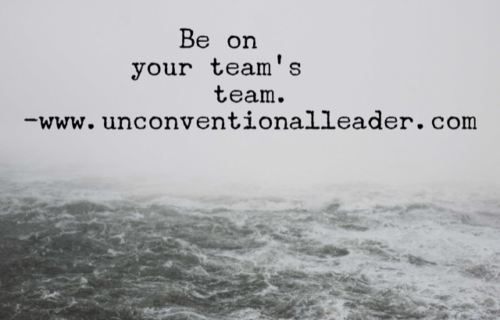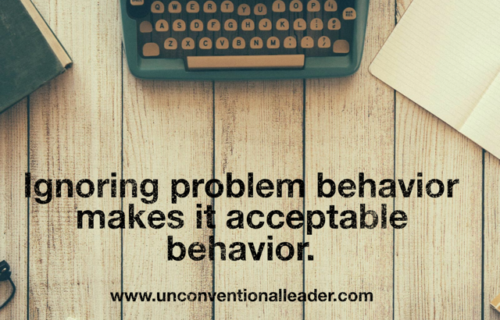
“WHY?” Can Be a Pain In The A$$ (But Answer Anyway)
 His brow furrowed and a perspiration started to manifest itself on his upper lip when I asked it. Then, as quickly as the look of anger came upon him, his head cocked (as if he were a confused puppy), his brow softened, and he answered, “Because I said so.”
His brow furrowed and a perspiration started to manifest itself on his upper lip when I asked it. Then, as quickly as the look of anger came upon him, his head cocked (as if he were a confused puppy), his brow softened, and he answered, “Because I said so.”
The question was, “Why?” I don’t know if he had never been asked that question before but, due to his response, I never asked it again. It was, after all, a military organization and orders were orders (not requests). As I grew up in the Navy I figured out the actual “Why” to the question I asked (and many more) on my own but I can’t help to think how much I missed out on and how much the leaders I worked for missed out on (in my motivation to get the job done) because I didn’t know the “Why”.
Today’s young team members aren’t any different than we were when we joined the work force. Thinking back, I’m sure you wanted to know the “why” as well. But, after having an experience like mine, you weren’t inclined to ask more than once. The difference is that workers today need the “why” and we shouldn’t let history repeat itself if we want to keep them as motivated members of the team.
Why do people ask “Why?”
They want to know how it works.
They want to know how they fit.
Why should we give the “Why?”
So people know how it works. If we get hit by a bus, if we give the “why” the organization isn’t left without someone who knows. That may seem drastic but our job as leaders is not to create automatons, it’s to create leaders. Further, we might get some new ideas on how to make it work better if we answer and listen.
So they know how they fit. If people know how they fit, their contribution is usually greater because they know where they provide value. As human beings, we want to know that going to work means more than just a paycheck, we want to know that what we do means something. Knowing fit breeds motivation.
It can be a pain to give the “why” when we just want the task done. I get it. Plus, who likes to have their orders questioned? I don’t, do you?
It doesn’t make a difference how big of a pain it is or how much it bruises our ego, the “why” must be embraced if we want to keep our people engaged and motivated. Otherwise, we’ll be asking, “WHY are they leaving?”
Don’t disregard the question, develop the team by giving the “why!” They deserve to know.





